Thyroid
The thyroid is a butterfly-shaped gland located at the base of the neck, responsible for producing hormones that regulate metabolism, energy levels, and overall bodily functions. Thyroid disorders can significantly impact health, leading to conditions such as hypothyroidism (underactive thyroid) and hyperthyroidism (overactive thyroid). Hypothyroidism occurs when the thyroid does not produce enough hormones, resulting in symptoms like fatigue, weight gain, and sensitivity to cold. In contrast, hyperthyroidism involves excessive hormone production, leading to symptoms such as weight loss, rapid heartbeat, and anxiety.
Diagnosing thyroid disorders involves a series of blood tests that measure hormone levels. The most common tests include Thyroid Stimulating Hormone (TSH) and Thyroxine (T4). Elevated TSH levels and low T4 levels typically indicate hypothyroidism, while low TSH and high T4 levels suggest hyperthyroidism. Additional tests, such as thyroid antibodies, can help identify autoimmune conditions like Hashimoto’s thyroiditis or Graves’ disease. Imaging studies, including ultrasounds and thyroid scans, may also be performed to detect nodules or enlargement of the thyroid gland.
Treatment for thyroid disorders varies depending on the specific condition. For hypothyroidism, the primary treatment is hormone replacement therapy with synthetic levothyroxine, which helps normalize hormone levels and alleviate symptoms. Patients with hyperthyroidism may be treated with antithyroid medications, radioactive iodine therapy, or, in some cases, surgery to remove part or all of the thyroid gland. Regular monitoring and follow-up appointments are crucial to ensure effective management and adjust treatment as needed, helping individuals maintain a healthy balance in their thyroid hormone levels.













